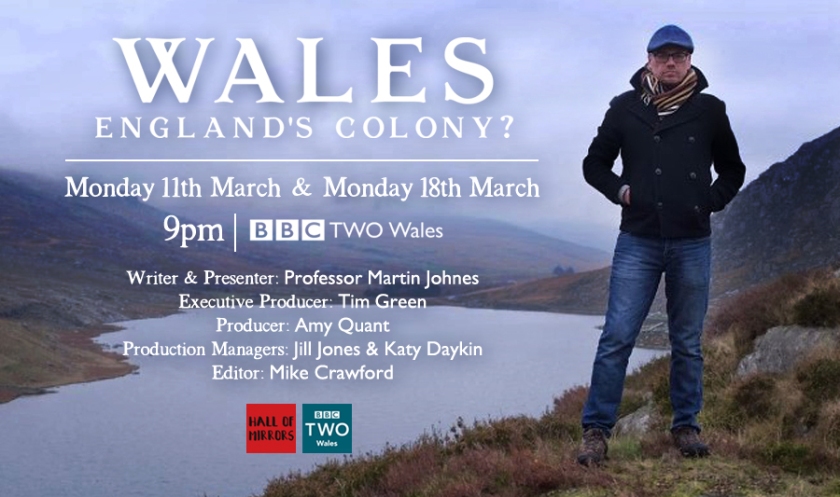This probably duplicates info already on Blackboard / Canvas but hopefully it helps with your essays when library access might be reduced. It should be used in conjunction with the guide to online historical sources produced by the library. The list below is more Wales-specific and focuses on what is useful for the Welsh Century module.
There is a review of the academic historiography of modern Wales here. You’ll need to use your Swansea log-in. It’s a bit dated now but does offer an introduction that should give you ideas. There is another version of the same essay here which does not require a log in.
Historical Welsh newspapers
Access to a large number of local newspapers from Wales from the pre 1919 period. https://newspapers.library.wales/
Welsh journals and periodicals
This is full-text versions of journals, magazines and periodical from the eighteenth century until the 21st century. It will thus give you access to primary and secondary sources and can be searched by name, place, word etc. https://journals.library.wales/
Dictionary of Welsh Biography
Short biographies of eminent and sometimes obscure figures in Welsh history. If you want to find out about individuals you should also look at the Oxford Dictionary of National Biography (Swansea log-in required).
Historical statistics
The Digest of Welsh Historical Statistics 1700-1974
Moving Pictures
The British Film Institute has a variety of different films about Wales. The collection includes home movies and factual films.
Newsreels were news fims broadcast at the cinema before the main picture. You can access newsreel reports from between the wars here. Just search for Wales.
Welsh History Review
This is the leading journal for academic work on Welsh history. Digital copies are free from 1967 to 2002. If you are looking for a specific article and volume you can access them here. If you are searching for a theme or key word, then use this search page and enter Welsh History Review into the publication title box.
For issues after 2002, you need to use this database. You will need to sign in using your Swansea login details.
Llafur
Llafur is the other academic journal dedicated to general Welsh history.Digital copies are free from 1972 to 2004. If you are looking for a specific article and volume you can access them here. If you are searching for a theme or key word, then use this search page and enter Llafur into the publication title box Issues after 2002 are not online.
This is an online repository for historical images and some documents. The content is quite eclectic but it is full of rich material and worth searching.
Contains full text versions of many nineteenth-century publications including the infamous Blue Books. Worth playing around.
History of the Welsh language
- An important essay about the early history of the Welsh language question on the census.
- 1891 census report on languages in Wales
- 1901 census report on languages in Wales
- 1911 census report on languages in Wales
- 1921 census report on language in Wales
- Overview of how the census question on Welsh has changed and its accuracy
Wales and War
- Cymru 1914: the Welsh experience of the First World War A digital collection of primary sources on Wales and the First World War
- Historical resources on peace activism in Wales http://www.walesforpeace.org/wfp/index.html
- Green Mountain, Black Mountain (1942). A Second World War propaganda film written by Dylan Thomas that offers a vivid picture of Wales.
- Martin Johnes, Welshness, Welsh Soldiers and the Second World War. Academic chapter.
- Some short online essays by me on Wales and the Second World War
- Daily Life During World War II (BBC Wales)
- Evacuation and Wales in World War II (BBC Wales)
- Bombing raids in Wales (BBC Wales)
- Women in World War II (BBC Wales)
- The coal industry in World War II (BBC Wales)
- Welsh identity during the Second World War (BBC Wales)
- Swansea’s Blitz (Click on Wales)
- You should also, of course, also consider the British historiography since this was a period when there were very clear UK-wide trends. An excellent academic introduction for the Second World War can be found here.
Women’s history
- Resources from the National Museum looking at 1900-1918
- Welsh Women’s Archive Includes material on women in the First World War.
- A BBC podcast where Dr Stephanie Ward discusses gender in modern Welsh history
Politics
- Labour Party manifestos
- A BBC podcast where Dr Daryl Leeworthy discusses the politics of mining communities and what the Labour Party achieved
- Hansard: transcriptions of Parliamentary debates
- Election statistics (1918-)
- British Cartoon Archive (University of Kent) http://library.kent.ac.uk/cartoons/ World’s largest archive of (newspaper) cartoons.
- Plaid Cymru History– lots of phamplets and other resources
- Cabinet papers from the British government. What happened in Wales was shaped by decisions made in Westminster…
Maps
Explore historic maps from Wales and the UK here.
Television documentaries
Episode 2 of Wales: England’s Colony? (2019) Presented by yours truly, it explores the relationship between Wales and England in the modern period.
Episode 4 of The Story of Wales (2012). An overview of the industrial revolution and its impact on Wales.
Episode 5 of The Story of Wales (2012). An overview of industrial and modern Welsh society. Covers much of the ground we have looked at in The Welsh Century.
Saunders Lewis (1992). A documentary about one of the founders of Plaid Cymru.
The Dragon has two Tongues. This was a 1980s documentary that debated Welsh history. ITV have not allowed it to be put online but these extracts offer some sense of its overall debate about the nature of Wales’s past.


